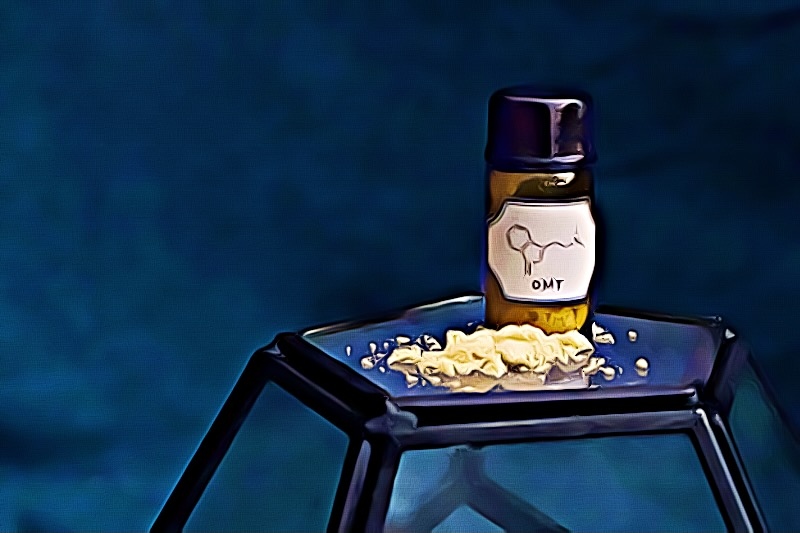It is challenging to get through a drug addiction recovery program, but with the right help and support, most people will succeed. When you have a recovering addict in the family, you need to go beyond knowing treatments and recovery plans. You have to be aware of the symptoms of addiction to various drugs. Besides substances like cocaine, cannabis, and methamphetamine, you should be aware of lesser-known ones like DMT.
What Is DMT?
Dimethyltryptamine, also known as DMT, is a psychedelic drug that occurs naturally in many plants and animals. The use of DMT’s active ingredient, ayahuasca, is part of many South American cultures—various indigenous groups include this substance in religious rituals or other recreational activities.
DMT can cause changes to the senses—a “trip” can bring auditory and visual hallucinations that last for approximately half an hour. Typically, DMT comes in a white powder that users smoke with a pipe or brew into drinks. Sometimes, people inject the drug as well. Street names of DMT include “fantasia” and “dimitri.”
DMT acts on serotonin receptors in the brain, much like LSD and other psychedelic drugs. Changes in serotonin levels can cause distortions—as a result, the brain interprets visual and auditory input differently. People who experience these distortions report seeing mechanical, crystalline, or elven worlds. Though their hallucinations are relatively short, they report to feel that it is real—people who abuse this drug various times self-report an understanding of the underlying structure of the universe.
Is DMT Illegal? What Is Its Drug Class?
DMT rose in popularity in the 1960s, and the United States government placed it under federal control in 1971. The DEA classifies it as a Schedule I drug with no legitimate medical purpose. The agency imposes strict penalties for the manufacture, sale, and possession of DMT—people caught with it or using it face heavy fines and decades in prison.
In 2006, the Supreme Court ruled that the federal government cannot prevent practitioners of religions that consider the use of DMT as part of religious expression. However, DMT remains illegal for most Americans, and anyone using it risks penalization.
What Kind of Effects or “High” Does DMT Bring?
DMT primarily has a psychological effect on users. People who take this drug use it because it brings intense visual and auditory hallucinations. Users report shifts in time, perception, identity, strange sensations, life-changing experiences, and an altered sense of time and space. People who use DMT say it has the fewest adverse side effects among hallucinogenic drugs like ketamine, LSD, or mushrooms.
People who smoke this drug ingest an average dose of 30 to 150 micrograms of the substance, and they immediately feel its effects. DMT’s effects peak for three to five minutes and gradually drop off, and the “high” lasts for 30 to 45 minutes. Consuming this hallucinogen as a brew results in ingesting between 35 to 75 micrograms of the drug, and the effects come slowly. They start 30 to 45 minutes after ingestion, peak at two to three hours, and vanish four to six hours afterward.
The “trip” that DMT brings can be overwhelming or frightening. Depending on the user, DMT’s effects could be so powerful that the hallucinations it brings could be difficult for people to incorporate into their real lives. What’s more, the mental side effects of DMT can linger for days or weeks.
What Are the Side Effects of DMT?
Drug addiction, especially to hallucinogens, can have an impact on neural circuits in the brain. Specifically, DMT affects neurotransmitters that alter a person’s mood, cognition, and perception. Humans and other mammals have small amounts of this substance in the brain, cerebrospinal fluid, and other tissues. According to the National Institute on Drug Abuse, the release of endogenous DMT might be associated with reports of near-death experiences, mythical experiences, and alien abductions, so larger amounts of it would cause more significant changes.
Taking this drug even once or in small amounts can bring adverse effects. Some of the consequences of taking DMT include agitation, rapid heart rate, dizziness, dilated pupils, rapid eye movements, raised blood pressure, and chest pains.

This substance is also a serotonin agonist and acts on serotonin receptors similarly to antidepressants like MAO inhibitors. People who take large amounts of DMT or take it while on antidepressants are at risk of serotonin syndrome. Side effects of this condition include confusion, headaches, loss of muscle coordination, shivering, goosebumps, and high blood pressure. Some people who experience this syndrome contract a high fever or exhibit an irregular heartbeat. They may even fall unconscious or have seizures.
Large doses of DMT can lead to respiratory arrest or seizure disorders. It could even cause users to fall into a coma. This drug can also trigger mental health issues like anxiety, depression, and schizophrenia since it can cause rapid changes to the brain’s chemistry. Combining this substance with others like opioid painkillers, antihistamines, amphetamines, sedatives, and sedative-hypnotics can cause serious side effects.
DMT also causes hyperthermia and dehydration, which could be dangerous in social settings like raves or clubs. People who attend these events could pass out and not get immediate medical attention. Those who suffer from these symptoms could fall into a coma or damage vital organs like their kidney, liver, brain, or heart.
Besides physical changes, using DMT could cause emotional side effects. These can last for a short time after the drug leaves the system, but the effects can also linger. Some emotional effects of DMT include a loss of sense of self, depersonalization, and identifying with inanimate objects. These emotional consequences can lead to long-lasting anxiety. People suffering from DMT’s adverse effects could feel like they have no control, which leads to anxiety and paranoia. Since their senses are out of line with reality, it could be difficult for them to distinguish between fantasy and reality, leading to psychological issues even after the drug leaves their system.
Is DMT Addictive?
At times, people can develop an addiction to dimethyltryptamine. Abuse of DMT from recreational use is uncommon. However, it does happen, and people who use this substance can quickly develop a tolerance for other psychedelics like LSD and psilocybin. If a user experiences pleasurable hallucinations from DMT, they could start craving the substance, leading to mental or physical harm.
Researchers do not have a complete picture of the effects of long-term or excessive use of DMT. They are also continuously researching the effects of addiction to the substance. There is little to no evidence that ayahuasca has lasting neurological or physiological deficits, but the substance’s physically addictive qualities remain to be seen. However, researchers have established that a user can become addicted to DMT’s psychological effects, something you can observe in users of other psychedelic drugs.
Conclusion
It is vital to prevent substance abuse problems from worsening. Potent and dangerous drugs like DMT have various severe long-term effects on users. If you believe that you or a loved one has a drug addiction, the best thing to do is seek help. It is possible to overcome addiction and have a life free from alcohol and drugs, but you need to put in work. Going to a treatment center and finding a support group is one of the first things you can do to recover.
Sources:
https://www.drugabuse.gov/publications/research-reports/hallucinogens-dissociative-drugs/director

